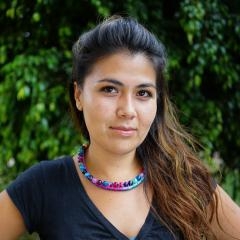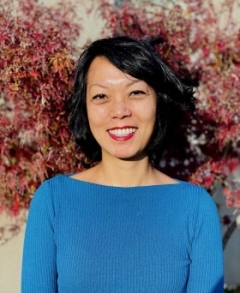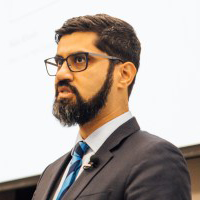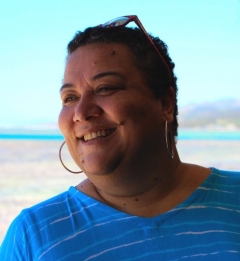The impacts of climate change are ultimately experienced most by populations already suffering discrimination and marginalisation, including indigenous peoples, minorities, migrants, rural workers, persons with disabilities, women, LGBT+ communities and the poor. This session explores how exposing these impacts and seeking solutions to the challenges associated with climate change can have significant effects on the rights to health, education, employment, housing, work, water and food.
Liliana Avila
Liliana A. Ávila is the Senior Attorney of AIDA's Human Rights and Environment Program. AIDA is the only regional organisation of environmental legal experts who are both from and in Latin America.
A Colombian, Liliana works from the Bogotá office and is an attorney from the Universidad Externado de Colombia, a specialist in constitutional law, and holds a Masters in Legal Argumentation from the University of Alicante in Spain. She has experience in international human rights law and international systems for the protection of human rights. She's a professor of international law at the Universidad Externado and has worked as a legal advisor on human rights, international humanitarian law, and public health.
Mijin Cha
Mijin Cha’s research revolves around climate justice and worker rights. She is an Assistant Professor of Urban and Environmental Policy at Occidental College and Fellow at Cornell University Worker Institute. She is also on the Board of Center on Race, Poverty, and the Environment (CRPE), a California-based organisation providing organising and legal support for grassroots environmental justice groups.
Her organisation primarily works with low-income communities and communities of colour. She is currently examining equitable transition for workers into a low carbon economy, including her recent publication "A just transition for whom? Contested Just Transitions and the Powder River Basin".
Rajat Khosla
Rajat Khosla is the Senior Director of Research, Advocacy and Policy at Amnesty International. He is responsible for leading and developing the global research agenda, ensuring coherence on research outputs, standards and processes; ensuring leadership and coordination of the organisation’s international, regional and national advocacy engagements; and leading on the formulation of human rights policies, legal positions and litigation strategies.
Rajat previously served as Human Rights Adviser for the World Health Organisation, managed the global campaign on UDHR@70 at the Office of the UN High Commissioner for Human Rights, and held a variety of research and policy roles at the Centre for the Study of Developing Societies, the International Environmental Law Research Centre, and others. He holds a LLM in International Human Rights Law, a LLB, and a Bachelor’s degree in commerce and economics. He is no stranger to Amnesty, having served as Policy Adviser in the International Secretariat between 2010 and 2013.
Noelene Nabulivou
Noelene Nabulivou is a lesbian feminist organiser, educator, activist and advocate for marginalised, disenfranchised women and gender non-binary people everywhere. She works for human rights and social, economic, ecological and climate justice for all in Fiji, the Pacific and globally for over 35 years.
As the Director of Diverse Voices and Action (DIVA) for Equality, Noelene is part of a collective effort to ensure justice for all Pacific women and non-binary people, including those deprived of socio-economic and environmental rights due to their sexual orientation, gender identity and expression and sex characteristics, poverty, location in urban poor, rural and maritime areas, disabilities, ethnicity, and more. Noelene works with local communities in all their diversities through service provision, direct action, collectives, hubs, networks, coalitions and social movements, and with governments, UN and development agencies.
Sofia Gruskin
Sofia Gruskin directs the USC Institute on Inequalities in Global Health (IIGH). She is Professor of Preventive Medicine and Chief of the Disease Prevention, Policy and Global Health Division at the Keck School of Medicine, Professor of Law and Preventive Medicine at the Gould School of Law.
Within USC, she is highly engaged in university service including as co-chair of the USC Senate Sustainability Committee, a member of the Senate Exective Board, and primary convener of the USC Law & Global Health Collaboration.
Gruskin sits on numerous international boards and committees including the PEPFAR Scientific Advisory Board, the Lancet Commission on Gender and Global Health, the IUSSP Steering Committee to Strengthen Civil Registration and Vital Statistics Systems, and the Lancet Commission on Health and Human Rights.





